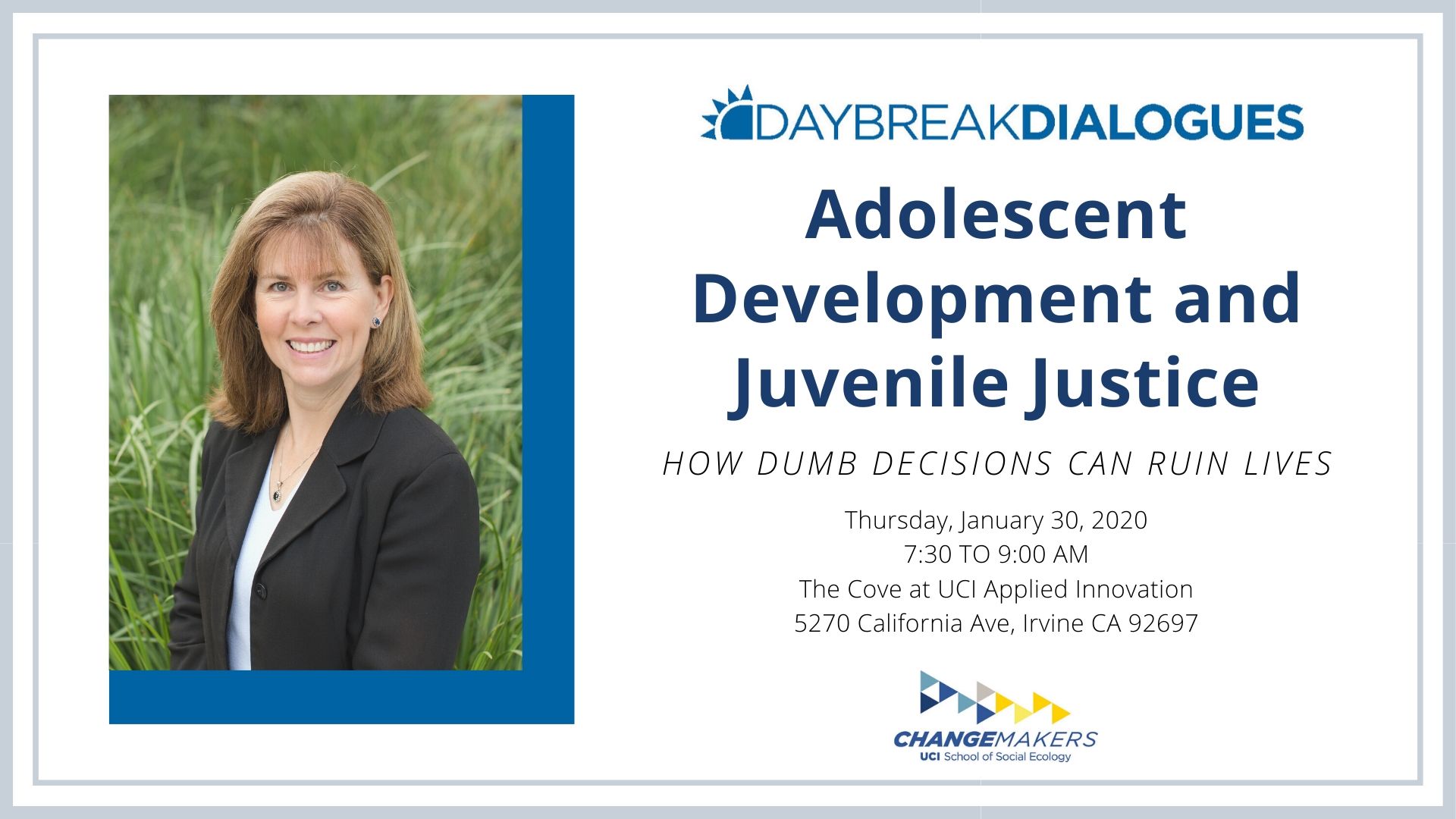
Presentation
If kids are so smart, why do they do such stupid things? This is an important question because the stupid things kids do often get them into serious trouble, and sometimes that trouble has lifelong consequences. Research on adolescent brain development, as well as psychological studies of human development, are yielding a much clearer picture of why smart adolescents do dumb things – drink and drive, send naked pictures of themselves via text, etc.
Join the Social Ecology ChangeMakers at Daybreak Diaologues, as Elizabeth Cauffman, professor of psychological science, education and law, explains how cognitive and emotional maturation follow different developmental trajectories and presents preliminary findings from her research studies, “Pathways to Desistance” and Crossroads”. Professor Cauffman will examine the impact of the juvenile justice system on kids’ development and behavior and will discuss the innovative Young Adult Court in Orange County.
About the Presenter
Elizabeth Cauffman is a Professor in the Department of Psychological Science in the School of Social Ecology and holds courtesy appointments in the School of Education and the School of Law. Dr. Cauffman received her Ph.D. in Developmental Psychology from Temple University and completed a post-doctoral fellowship at the Center on Adolescence at Stanford University. At the broadest level, Dr. Cauffman’s research addresses the intersect between adolescent development and juvenile justice. She has published over 100 articles, chapters, and books on a range of topics in the study of contemporary adolescence, including adolescent brain development, risk-taking and decision-making, parent-adolescent relationships, and juvenile justice. Findings from Dr. Cauffman’s research were incorporated into the American Psychological Association’s amicus briefs submitted to the U.S. Supreme Court in Roper v. Simmons, which abolished the juvenile death penalty, and in both Graham v. Florida and Miller v. Alabama, which placed limits on the use of life without parole as a sentence for juveniles. As part of her larger efforts to help research inform practice and policy, she served as a member of the MacArthur Foundation’s Research Network on Adolescent Development and Juvenile Justice as well as the National Academies of Sciences, Engineering, and Medicine’s Committee on the Neurobiological and Socio-behavioral Science of Adolescent Development and Its Applications. Dr. Cauffman currently directs the Center for Psychology & Law (https://psychlaw.soceco.uci.edu/) as well as the Masters in Legal & Forensic Psychology program (https://mlfp.soceco.uci.edu/) at UCI. To learn more about her research, please visit her Development, Disorder, and Delinquency lab website.

Connect with us